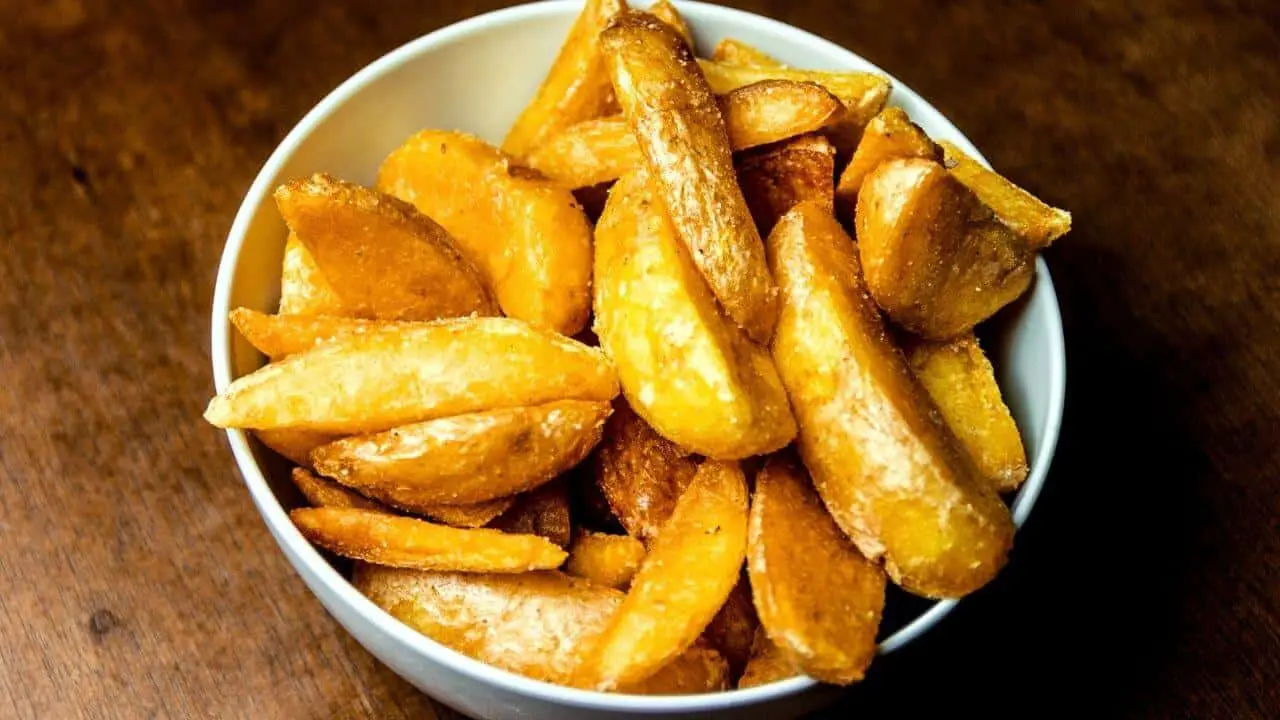Last Updated on May 19, 2023 by River Tree Farms
Potatoes are known for making individuals feel extremely exhausted after eating them, which is due to blood glucose levels.
The sugar in refined carbohydrates is used by the body to convert them into energy.
However, the sugar is swiftly released, burned, and afterward used up, abandoning you with an energy drop and experiences of drowsiness and sluggishness.
Complex carbs (brown rice, whole-wheat pasta, oats, and beans) combined with protein and fat are the greatest strategy to avoid fatigue after eating carbs. These carbs are more difficult for the body to process and boost glucose levels slowly and persistently. You will have a consistent energy level as a result of leveling out your blood sugar level in this manner, which will result in one not feeling extremely exhausted after taking a meal.
Why do I get tired after I eat potatoes?

When compared to most foods, potatoes have a larger effect on blood sugar levels. As a result, processed carbs are more likely to cause sluggishness and fatigue from low blood sugar. If you are diabetic, you’re more likely to experience low blood sugar, commonly known as hypoglycemia.
The blood glucose increases faster after consuming potato meals than this does after eating a low-glycemic diet. Energy depletion, sometimes known as a “crash,” is widespread. Combine sugary meals with low-glycemic items like milk, grains, and groundnuts to minimize the risk of getting tiredness.
After eating Potatoes, insulin is produced by the pancreas, which then converts these sugars (glucose), circulating in the bloodstream into glycogen within our cells. Excess insulin production induces the essential amino acid tryptophan to reach the brain. While in the brain, it triggers the production of serotonin and melatonin, two neurons that have a soothing effect and aid in regulating sleep. Surprisingly, the gut contains 90% of the body’s natural serotonin, which regulates bowel movements.
Food allergy may also contribute to tiredness after a meal. “Food allergies are typically related to digestive problems such as bloating, gas, stomach issues, digestive problems, bowel problems, and diarrhea.
This another element that may significantly contribute to lethargy after a plate of food is if you have a food adverse reaction. This is one of the tops of such physiological reasons for feeling tired after lunch.
Does eating a potato help you sleep?

Eating potatoes or sweet potatoes and eating patterns might cause tiredness in addition to giving energy and nutrition. If you suffer from anxiety or have trouble sleeping, meals encouraging sleepiness can help you relax and sleep better.
Carbohydrates – your body’s important nutritional energy source — are abundant in starches like baked foods, cereals, and spaghetti. High-carbohydrate foods, ironically, might make you sleepy.
Carbohydrate-rich foods stimulate the supply of serotonin, a neurotransmitter that can improve our mood while also making us feel content and potentially sleepy.
Overeating potato meals can result in sleepiness because the body has to work extra and use more energy required to digest the volume of food.
Conclusion
From the article, it is clearly evident that eating potatoes can cause sleep and tiredness. Here are some of the causes.
Potatoes contain a large amount of starch. The body converts the starch to sugar used to provide energy to the body. However, the sugar is swiftly released, burned, and afterward used up, abandoning you with an energy drop and experiences of drowsiness and sluggishness.
Overeating potatoes causes sleep and tiredness since more energy is required to digest the food.
Food allergies are also a major contributor to sluggishness. The solution limits the number of potatoes consumed and complements it with a protein diet. Visiting the Doctor in case of stomach problems.

